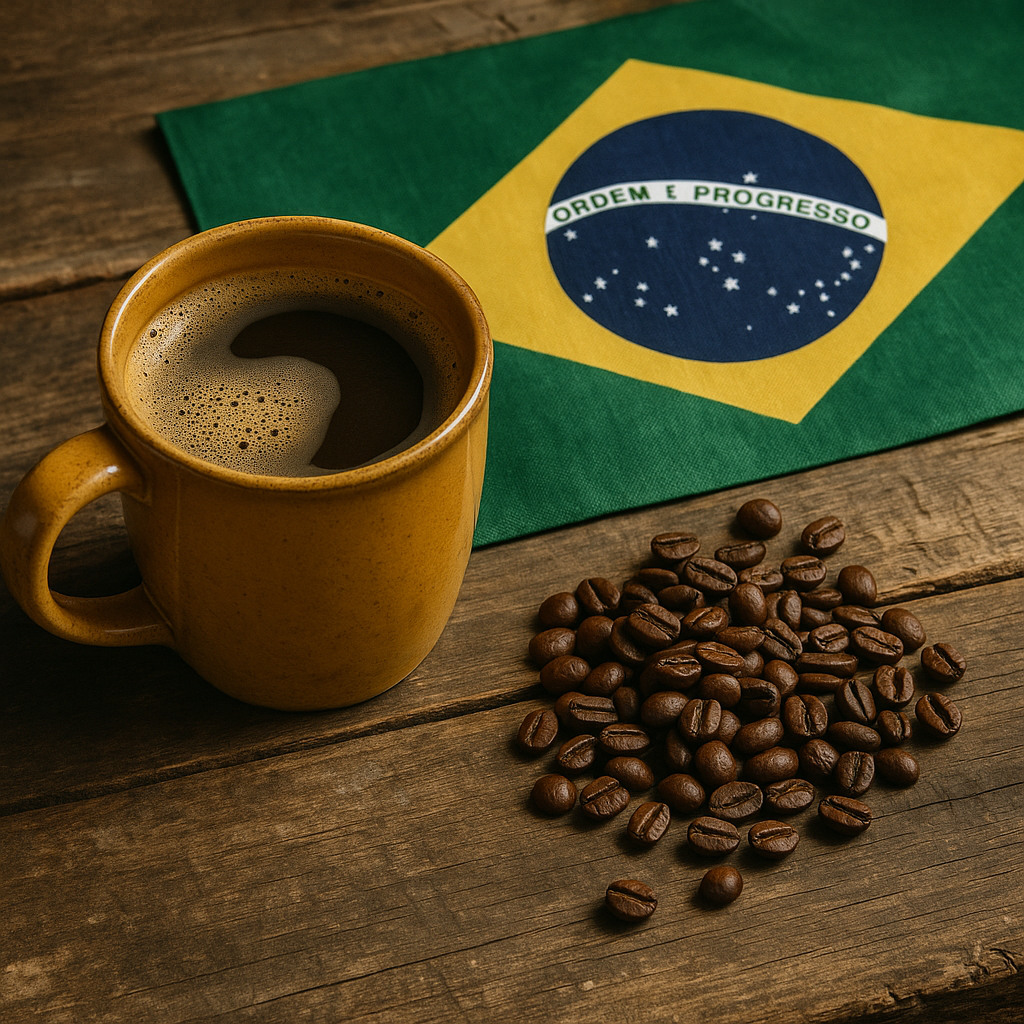Coffee consumption in Brazil is not just a habit—it’s a way of life. As the world’s largest coffee producer and one of its most passionate consumer nations, Brazil’s connection with coffee runs deep. The focus on coffee consumption in Brazil reveals more than numbers; it uncovers a story of tradition, culture, and community. From early morning routines to late-night gatherings, coffee fuels not only the country’s energy but also its identity.
This article explores how coffee shapes Brazilian life, from traditional habits to modern statistics that reveal just how integral coffee is to the country’s identity.
The Cultural Importance of Coffee in Brazil
Coffee isn’t merely a beverage in Brazil — it’s a social connector. The phrase “vamos tomar um café?” (“let’s have a coffee?”) is one of the most common invitations among Brazilians, often meaning much more than a drink. It represents hospitality, friendship, and conversation.
The classic “cafezinho”, a small cup of strong, sweetened black coffee, is served everywhere — from homes and offices to street corners and bakeries. It’s offered to guests as a sign of respect and affection. Coffee punctuates the Brazilian day, marking both work breaks and family moments.
Popular Coffee and Milk Combinations in Brazil
While Brazil produces a wide range of coffee varieties, filtered coffee (café coado) remains the nation’s favorite. Traditionally brewed using a cloth or paper filter, this simple preparation is cherished for its comforting aroma and balanced flavor. However, coffee consumption in Brazil is evolving rapidly, with espresso-based drinks gaining popularity, especially among younger generations in major cities.
Rising Coffee Trends
Modern Brazilian coffee culture is expanding beyond the traditional “cafezinho.” Current trends include:
- Specialty and gourmet coffee: Consumers are increasingly seeking single-origin and high-quality beans from small producers.
- Coffee capsules and pods: Convenience has boosted capsule sales, particularly in urban homes.
- Cold brew and iced coffee: Warmer climates and global influences have driven demand for chilled coffee drinks.
- Sustainable and organic coffee: Environmental awareness is shaping purchasing choices.
Despite these trends, the simple, sweet, homemade “cafezinho” still reigns as the national favorite.
Coffee Consumption Statistics in Brazil
According to the Brazilian Coffee Industry Association (ABIC), Brazil consistently ranks as one of the top coffee-consuming countries globally. Here are some key figures that illustrate just how significant coffee is in Brazilian life:
- Over 21 million 60kg bags of coffee are consumed annually in Brazil.
- That equals more than 1.5 million tons of roasted coffee each year.
- The average Brazilian consumes about 6 kg of coffee annually.
- An estimated 98% of households drink coffee regularly.
- Consumption is growing fastest among young adults and women, who show increasing interest in flavor, quality, and brewing methods.
These numbers highlight that coffee is not just part of Brazil’s economy — it’s part of its everyday rhythm.
When and Where Do Brazilians Drink Coffee?
Coffee in Brazil is consumed throughout the day, and each moment has its own tradition:
- Early Morning – A strong, sweet coffee starts the day, usually with breakfast.
- Mid-Morning and Afternoon – Served during breaks at work or home as an energizing pause.
- After Meals – Especially after lunch or dinner, coffee helps digestion and completes the meal.
- Late at Night – Many Brazilians drink coffee even before bed, often out of habit rather than caffeine need.
Although most coffee is consumed at home, padarias (bakeries), cafés, and office break rooms are also central to Brazil’s coffee culture.
How Coffee Habits in Brazil Are Evolving
In recent years, Brazilian coffee consumption has undergone significant changes, influenced by social, economic, and technological factors.
Urbanization and Convenience
As urban lifestyles accelerate, more people are choosing quick and premium coffee options. Capsule machines and take-away espresso bars are now common in major cities like São Paulo and Rio de Janeiro.
The Rise of Specialty Coffee
A growing interest in traceability, sustainability, and flavor complexity is fueling the rise of specialty coffee. Young consumers are learning about coffee origins, roasting profiles, and brewing techniques — a shift from consumption to appreciation.
Technological Influence
Technology has transformed how Brazilians enjoy coffee. From app-based delivery services to smart coffee machines, digital tools are making quality coffee more accessible than ever.
These changes mark the evolution of Brazil from a coffee producer to a sophisticated, coffee-loving nation.
How Does Brazil Compare Internationally?
Although the United States leads in total consumption, Brazil ranks among the top nations in per capita coffee use. What makes Brazilian coffee culture unique is its emotional connection to the drink.
In many countries, coffee symbolizes energy and productivity. In Brazil, it represents relaxation, friendship, and everyday joy. It’s not just fuel — it’s comfort. This difference highlights how Brazilian coffee culture values both social experience and sensory pleasure, making it stand out worldwide.
Final Thoughts: Brazil’s Enduring Love for Coffee
Coffee consumption in Brazil is more than a statistic — it’s a story of connection, warmth, and national pride. Whether in a rural town or a bustling city, the love for coffee unites Brazilians across generations.
As new trends like specialty coffee, sustainable farming, and digital cafés emerge, Brazil continues to honor its deep-rooted traditions while embracing innovation. The humble “cafezinho” remains a symbol of hospitality and happiness — proof that, in Brazil, coffee is not just a drink, but a way of life.
